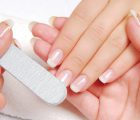
Acne-prone skin requires special care. In addition to dermatological treatment, it is a good idea to use appropriate cosmetics adapted to the needs of this type of skin. If you are among those struggling with pimples, increased sebum secretion and acne discoloration, then check how to properly take care of your acne skin.
How to take care for acne skin? Why is it that important?
In addition to pharmacological agents for acne skin, you should take care of your skin in many other ways. Diet, healthy habits, supplements and, of course, proper care. The last one is especially needed:
- before dermatological treatment;
- as a support during medication-taking;
- to maintain pharmacological effects;
- instead of medicines, if acne is not susceptible to them or the treatment does not require them.
Basic principles of acne skincare routine
It is important to note that not all ingredients will work in the same way for all types of acne. You should always remember to apply only the cosmetics that are necessary. Your skincare routine should be based on the following steps: cleansing, moisturising and exfoliating. These steps are repeated in the morning and in the evening until satisfactory results are obtained.
Acne skin – care ingredients
When it comes to the care of acne skin, the most important are the ingredients of cosmetics. Some of them (yarrow, lime, marsh-mallow) have a soothing and anti-inflammatory effect. Others have antibacterial effect (green tea, birch, rosemary, thyme). Additional substances include:
- a low concentration of acids with anti-seborrhoeic properties;
- antioxidants, e.g. vitamins;
- herbal extracts and algae;
- the anti-inflammatory substances: panthenol, allantoin, vitamin E, PHA acids;
- squalane, propolis, sulphur compounds, tea tree oil, azelaic acid;
- anti-inflammatory peptides;
- substances that lighten discoloration.
How to care of acne skin?
In the morning, focus on gentle cleansing and moisturizing. Micellar water, gels, foams and emulsions will work well here. When cleaning, be careful of crusts and active inflammation processes. The ingredients of such products should have a soothing, anti-inflammatory and antibacterial effect. Look for a substance with UV-protection properties that will also mattify your skin. Acne spot treatments that dry and heal small pimples will be of use as well.
Evening care should include cleansing, exfoliating and moisturising. In the case of acne skin, two-stage cleansing with oil and mild cleansing cosmetics is popular. When it comes to exfoliating, the product used should contain small particles, acids, as well as soothing and moisturising ingredients. It is also important to apply a good, moisturising cream for acne skin before bedtime.





Leave a Reply